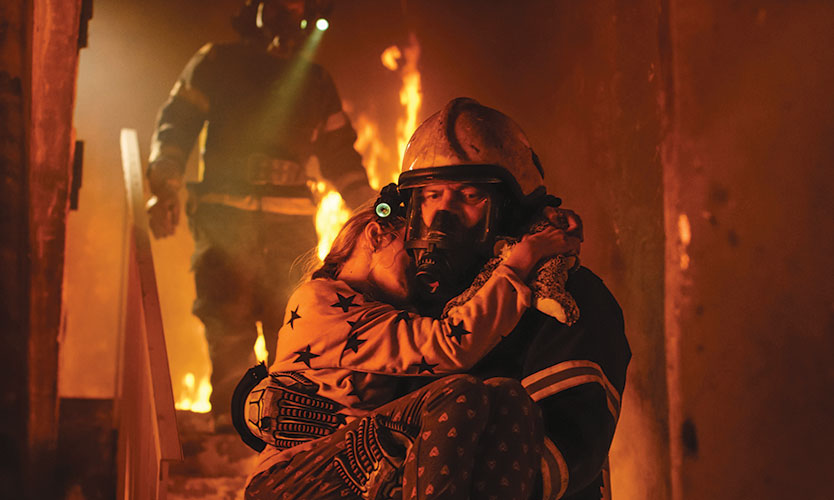Workers compensation presumption laws challenge employers
- November 8, 2025
- Posted by: Web workers
- Category: Workers Comp

Workers compensation presumption laws, which place the burden on employers to prove that an injury or illness was not picked up on the job, have increased as states seek to expand benefits for first responders with cancer and mental health issues.
The trend has accelerated during the COVID-19 pandemic as lawmakers seek to protect health care workers and others exposed to the disease through their employment.
But the addition of presumption laws for essential workers has raised concerns over how far the workers comp expansions may go and whether insurers and employers are prepared to deal with the associated expenses, which include legal costs as most presumption laws are “rebuttable,” meaning if an employer can prove the ailment was unrelated to work it can fight it in court.
Presumption laws “really didn’t exist probably 50 years ago, and frankly they’ve become an increasing challenge to the (workers comp) system in terms of maintaining that equity and that original trade-off between employers and employees,” said Chris Mandel, Nashville-based senior vice president and director at the Sedgwick Institute.
The first workers compensation presumption laws were enacted to cover first responders, such as firefighters, for specific diseases that could be connected to their jobs. California passed the first presumptive firefighter legislation in 1982, according to the National Association of Workers Compensation Judiciary.
From the employee perspective, presumption laws provide a “benefit that’s hard to argue against for individuals putting their life on the line for us as a public,” said Max Koonce, Fayetteville, Arkansas-based chief claims officer for casualty at Sedgwick Claims Management Services Inc. “From the standpoint of an employer … when you look at these types of risks, they’re not necessarily within the employer’s control and are difficult to address from a risk management standpoint.”
The potential cost of first responder and emergency worker presumption expansions has already been a challenge for the workers compensation industry to estimate, and the COVID-19 presumptions are making that job more difficult, in large part because public entities who are most affected by presumption legislation tend to be self-insured, said Rich Gibson, Carbondale, Illinois-based senior casualty fellow at the America Academy of Actuaries.
Thirty-three states have enacted presumption statutes that cover firefighters for one or more cancers, 10 have passed presumption laws that include post-traumatic stress disorders, and 19 have implemented legislation that provides presumptive coverage for respiratory and heart diseases, the Sedgwick Institute reported. As of mid-August, 17 states had passed either a law or executive order creating a presumption for certain classes of worker who contract COVID-19, according to the National Council on Compensation Insurance.
While COVID-19 may be a “black swan” event that was not foreseen, Mr. Mandel said, the “big question is the magnitude of the impact it may have on workers compensation.”
For Twane Duckworth, risk manager for the City of Jacksonville, Florida, the law that created a rebuttable presumption for first responders with heart disease and hypertension has been “extremely problematic and expensive.”
One of the biggest issues for his municipality is that impairment rating classifications have not caught up with health care advances, leaving first responders with cardiac disease often classified as having a Class 3 impairment of between 30% and 54% of the whole person and entitled to the benefits accompanied with that rating — even if many are able to have a procedure and return to work within a few days, he said.
The COVID-19 claim volume and severity has been “another crying situation” that is costing Jacksonville “a substantial amount of money,” Mr. Duckworth said. He said his municipality has processed numerous occupational coronavirus claims from first responders, and that multiple claimants have wound up in intensive care units at a cost of $200,000 to $300,000 per claimant.
“I foresee this causing such a flummox in the workers compensation arena that the trend we saw of lower rates by the state is going to absolutely reverse,” Mr. Duckworth said. “Carriers aren’t going to be able to afford this.”
The challenges of the workers compensation marketplace for municipalities affected by presumption laws has led some insurers to stop writing coverage. In February, Phoenix-based CopperPoint Insurance Co. announced that it would stop writing workers compensation coverage for fire districts and municipalities in Arizona because the marketplace had “become increasingly volatile and difficult to properly assess — which is why most private insurance carriers stopped covering these customers years ago,” said a spokesman for the insurer in an email. Arizona’s firefighter presumption law took effect in 2017. In 2020, state lawmakers proposed further expanding the list of covered cancers, but CopperPoint’s spokesman said its decision to exit the market “was not based solely” on that pending legislation.
“With cancer presumptions, employers and insurance companies may end up footing the bill for significant treatments and death benefits for cancers that are in no way related to the job,” said Jonathan Spadea, partner in the Harrisburg, Pennsylvania, office of Chartwell Law LLP. “The concern I see with COVID is this is a pandemic that is affecting everyone. If presumptions are put in place, all of a sudden employers and insurers are the ones footing the bill.”
Although the volume of COVID-19 workers comp claims hasn’t been “the avalanche” that the industry initially predicted, the reports on long-term debilitating effects present a challenge for the industry to determine how to finance the risk, Mr. Mandel said.



